
Advanced Search (Items only)

Corruption in Russia: IKEA’s Expansion to the East Case Study
- To find inspiration for your paper and overcome writer’s block
- As a source of information (ensure proper referencing)
- As a template for you assignment
Case Analysis
Recommendations.
The case analysis under discussion focuses on the opening of the first IKEA store in Russia. After the fall of the Iron Curtain, IKEA decided to enter Russian market and grab the attention of its newly emerged middle class. This decision was caused by the need of Russian people to have new, properly designed, and affordable furniture instead of the existing cumbersome cupboards and handmade items. However, the company encountered corruption and misunderstanding in Russia.
The first problem is associated with the improperly designed ad campaign that was perceived as immoral due to the fact that despite the dissolution of the Soviet Union, the local population preserved its mentality related to the taboo around sex. The second problem refers directly to corruption. In particular, several obstacles were created by Moscow officials to resist the store opening without paying a special service fee. For example, following its business model, IKEA was forced to build a new mall outside Moscow, namely in Khimki that is located three miles from the city. Furthermore, the construction of the special overpass that was expected to improve access to the store was blocked by Moscow, thus making the issue of traffic irresolvable. Finally, Russian representatives made an ultimatum, threatening to turn electricity off in case a service fee will not be paid.
From the above observations, it becomes evident that the core question of this case is whether to pay a fee or cancel the opening. It seems that the best strategy to resolve the identified problems is to continue expansion to the market with certain adjustments. First of all, it is necessary to change ad campaign calling people to share benefits of IKEA. This can be achieved through an in-depth exploration of Russian culture and mentality and subsequent conclusion. As for the ultimatum regarding electricity, it can be useful to implement diesel generators that are not dependant on it. The mentioned solution will eliminate one problem, yet it may give an opportunity to Russian officials to come up with another idea and also require paying the so-called service fee. In this connection, it is of great importance to resist local corruption on a global scale. In other words, it will be useful to apply for both national and global communities, attracting their attention to the problems. For instance, Anti-Corruption Agency identifies and controls corruption and bribery cases. Besides, it also seems to be important for IKEA to show Moscow the mutual benefits of their collaboration so that the latter can understand perspective opportunities.
The suggested solutions can be regarded as rather strong and relevant, especially the one that implies global collaboration in regards to corruption. A range of surveys initiated by international authorities can explore this case and identify potential threats as well. Speaking of the implementation of diesel generators to produce electricity, it seems appropriate to rent them from a foreign company and then transport to Russian mall. This can prevent the occurrence of similar situations in the future.
To conclude, it should be noted that the challenges faced by IKEA in Russia are quite difficult to resolve. Nevertheless, a set of well-organized decisions in the context of the comprehensively enhanced expansion strategy can improve the situation. At the same time, a contingency plan needs to be elaborated by IKEA CEOs, taking into account corruption issues, local culture, and Russian market strengths and weaknesses.
- Samsung Electronics Recalls as a Business Issue
- Nissan Company's Recovery and Operations Management
- IKEA Human Resources
- The Effects of Diverse Culture of IKEA in UAE to Impact of Cultural Diversity on IKEA
- IKEA: Its’ Success in the Internationalisation Process
- The Amount of Soda in the Bottling Company's Bottles
- IKEA's Challenges With Suppliers in India
- Agthia Group's Changes After Merger
- Sprint & T-Mobile Merger, Leadership and Decision-Making
- Crisis Management: British Petroleum Company
- Chicago (A-D)
- Chicago (N-B)
IvyPanda. (2020, November 18). Corruption in Russia: IKEA’s Expansion to the East. https://ivypanda.com/essays/corruption-in-russia-ikeas-expansion-to-the-east/
"Corruption in Russia: IKEA’s Expansion to the East." IvyPanda , 18 Nov. 2020, ivypanda.com/essays/corruption-in-russia-ikeas-expansion-to-the-east/.
IvyPanda . (2020) 'Corruption in Russia: IKEA’s Expansion to the East'. 18 November.
IvyPanda . 2020. "Corruption in Russia: IKEA’s Expansion to the East." November 18, 2020. https://ivypanda.com/essays/corruption-in-russia-ikeas-expansion-to-the-east/.
1. IvyPanda . "Corruption in Russia: IKEA’s Expansion to the East." November 18, 2020. https://ivypanda.com/essays/corruption-in-russia-ikeas-expansion-to-the-east/.
Bibliography
IvyPanda . "Corruption in Russia: IKEA’s Expansion to the East." November 18, 2020. https://ivypanda.com/essays/corruption-in-russia-ikeas-expansion-to-the-east/.
- Bahasa Indonesia
- Slovenščina
- Science & Tech
- Russian Kitchen
Losing the good fight: IKEA’s struggle to remain honest in Russia
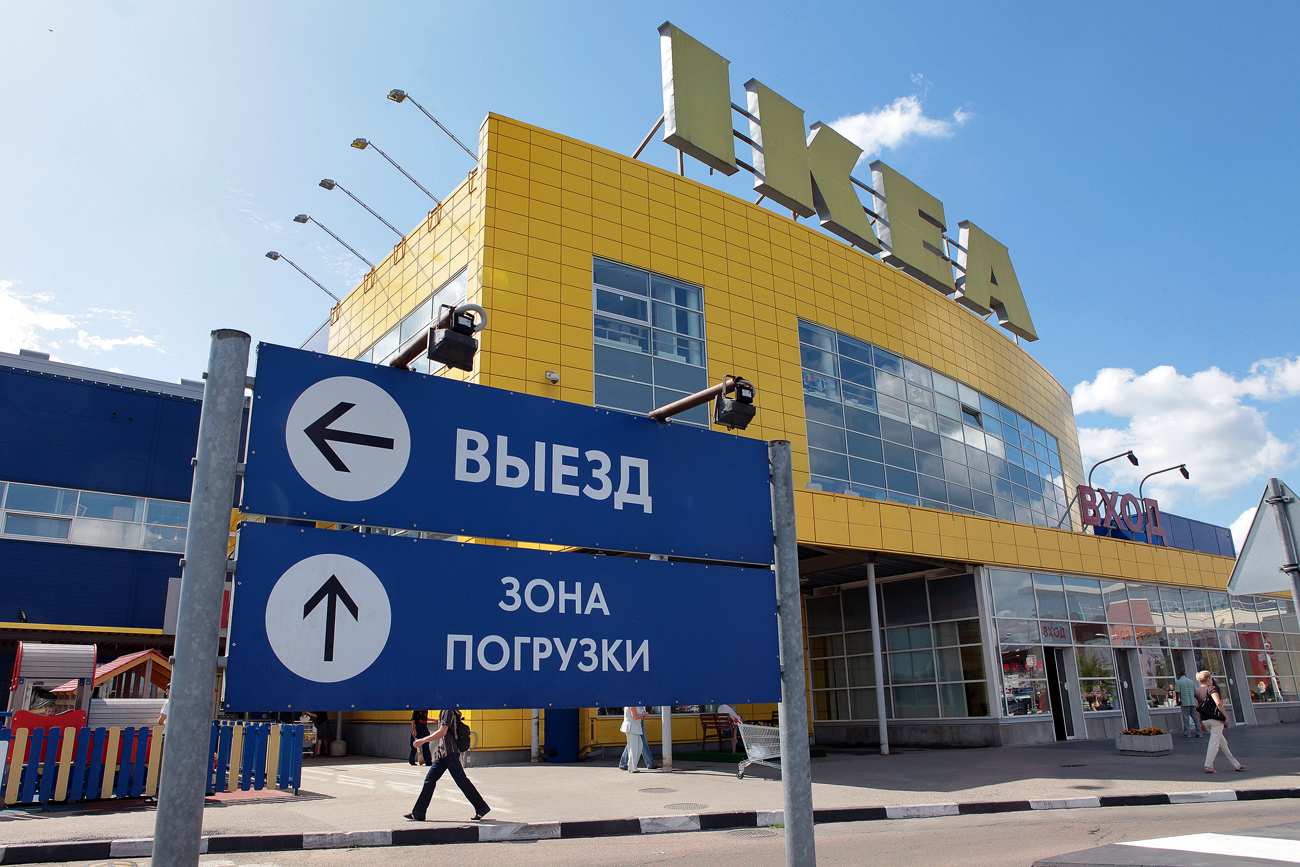
IKEA's shopping mall in Khimki.
In early August, searches were conducted in Swedish furniture giant IKEA’s Russian head office in Khimki (a town in the suburbs of Moscow where IKEA also has a shopping mall) in connection with an old land dispute. Two weeks later, a former IKEA manager, Joakim Virtanen, turned himself in to investigators, this time in connection with another controversy, related to the lease of electricity equipment. IKEA has been in litigation regarding these two disputes for over 10 years.
IKEA is an absolute champion in terms of the number of court cases it has had in Russia. The register of arbitration cases contains over 200 lawsuits against the Swedish concern, while the total number of court cases involving it has exceeded 560. All the other major retailers in Russia taken together would not have a tenth of this number of court cases between them.
The company itself is convinced that this is the result of its ambition to conduct honest business in the country and that other firms avoid such complications by paying bribes.
In 2010, Lennart Dahlgren, the former CEO of IKEA Russia, released a book called Despite Absurdity: How I Conquered Russia While It Conquered Me , in which he told the tale of what it costs to be true to one’s principles while surrounded by rampant corruption. The book named many people who obstructed its business, from the mayor of Khimki to the governor of the Moscow Region, and became a hit.
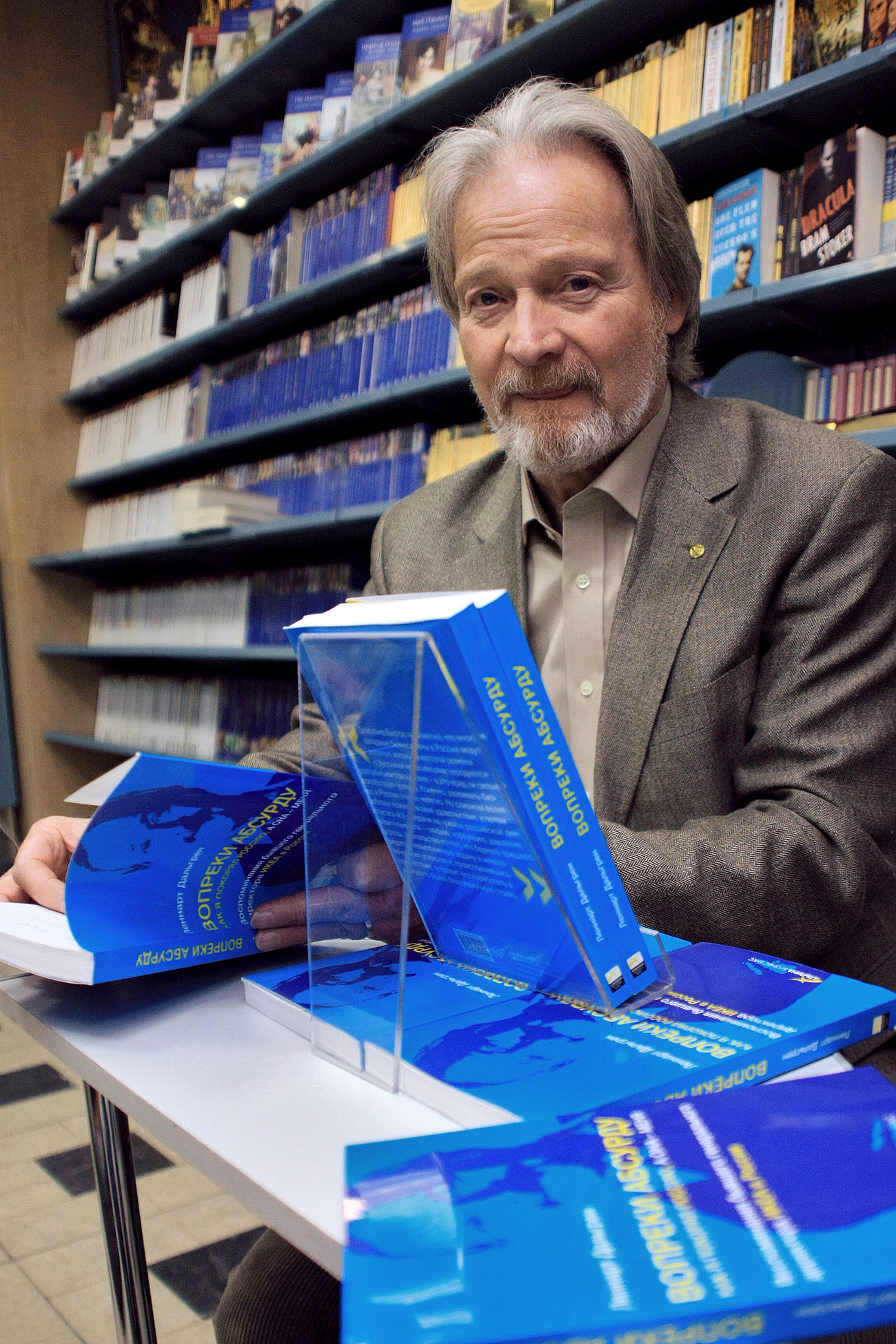
Market players, however, say that it is hard to be a saint while doing business in Russia and gladly cite examples of IKEA’s blunders.
Lawyer for special meatballs
To begin with, there are questions about the lawyer whom IKEA has chosen to represent its interests. The Lawyers and Business firm has represented the company in many lawsuits for several years already. In 2015, its owner, Sergei Kovbasyuk, defended IKEA in a class action lawsuit over a case of poisoning in the IKEA café, famous for its meatballs. Market sources maintain that the lawyer’s functions go far beyond that.
Kovbasyuk’s name became well-known in connection with a number of controversial cases. There were also media reports that Kovbasyuk used to work for the FSB (Russian Federal Security Service), hence his connections and astronomical fees. The lawyer himself has refused to talk to the press. Sources are convinced that his law firm renders services in so-called “special situations.” This euphemism usually implies corruption and corporate raiding as well as resolving “sensitive issues” with the authorities or other market players.
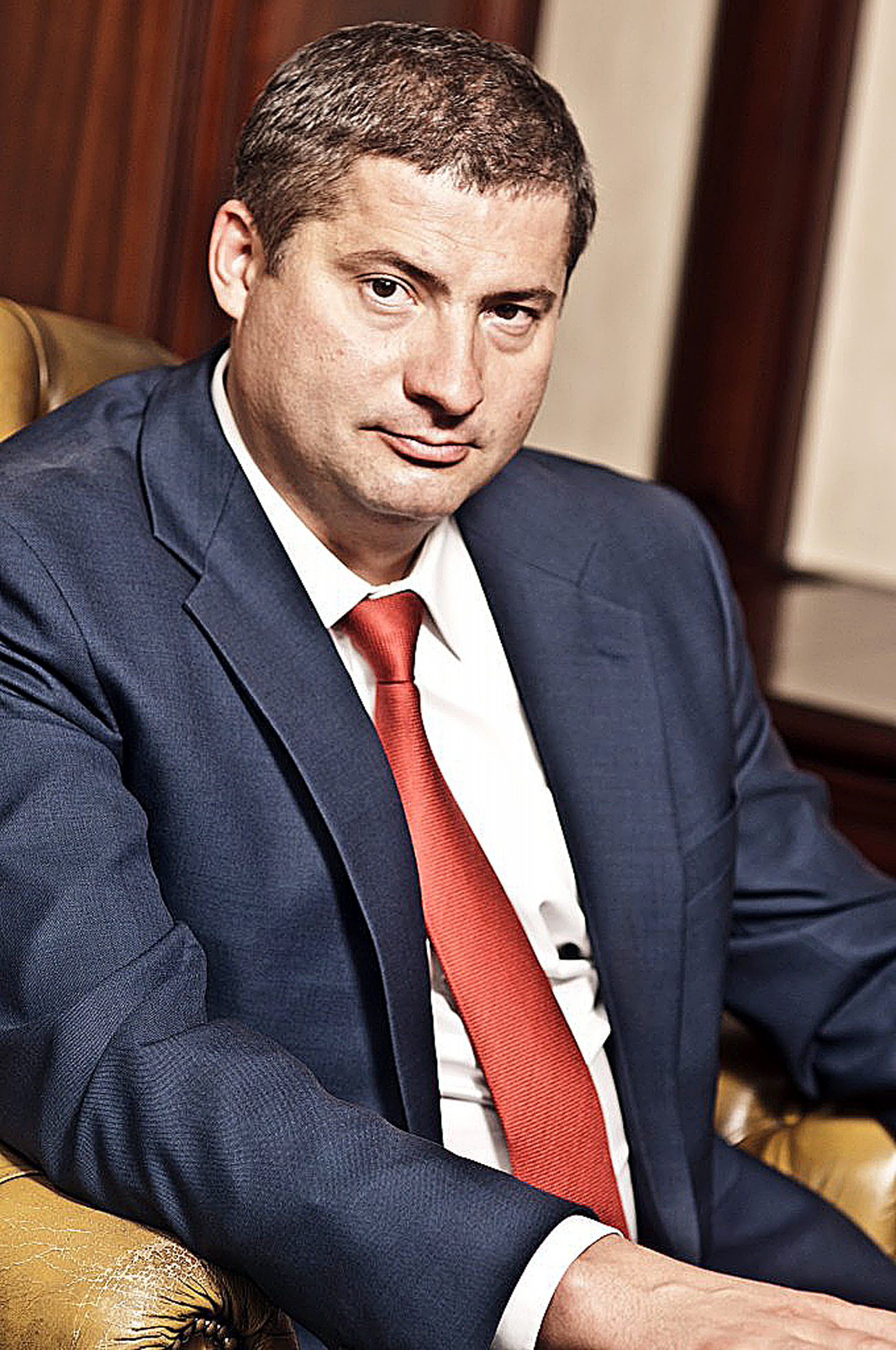
“When foreign companies do not understand the rules of the game in Russia, they hire intermediaries – legal and consulting groups or GR experts,” said Ilya Shumanov, deputy head of Transparency International – Russia. “These positions are highly corruptogenic and people who fill them are entrusted with resolving the most sensitive issues,”
Not furniture alone
Almost all the lawsuits are filed against the IKEA subsidiary that builds the company’s stores. In all countries, IKEA builds its shopping malls itself instead of renting premises. However, in Russia IKEA has come up against more problems than in other countries – primarily because it is hard to build things. (In the dealing with construction permits section of the Doing Business ranking, Russia is in 119th position out of 189.) This creates many opportunities for corruption.

The plots that IKEA was given for construction are mainly located on former collective farm land. “These plots have a tangled privatization history, with most cases being so old that it is often impossible to find all the related documents,” says the head of practice at the Infralex law firm, Sergei Shumilov.
For example, in Khimki the land was leased by the company, after which it was bought out, when suddenly in 2012 the former owner, while conducting inspections, discovered that it no longer had the land.
“Does this mean that no inventory was carried out for many years? And nobody knew or saw that this land is now the site of a major construction project that officials and the media are talking about. I personally find it strange, to say the least,” says Maxim Gladkikh-Rodionov, managing director of the Confidence audit firm.
It’s hard to be honest in Russia
In 2010, there was a corruption scandal in St. Petersburg involving Per Kaufmann, IKEA director for Central and Eastern Europe, and Stefan Gross, IKEA director for real estate in Russia. Both were sacked practically immediately. IKEA even decided to conduct an internal investigation to find out if any more of its employees were engaged in bribery directly or indirectly.
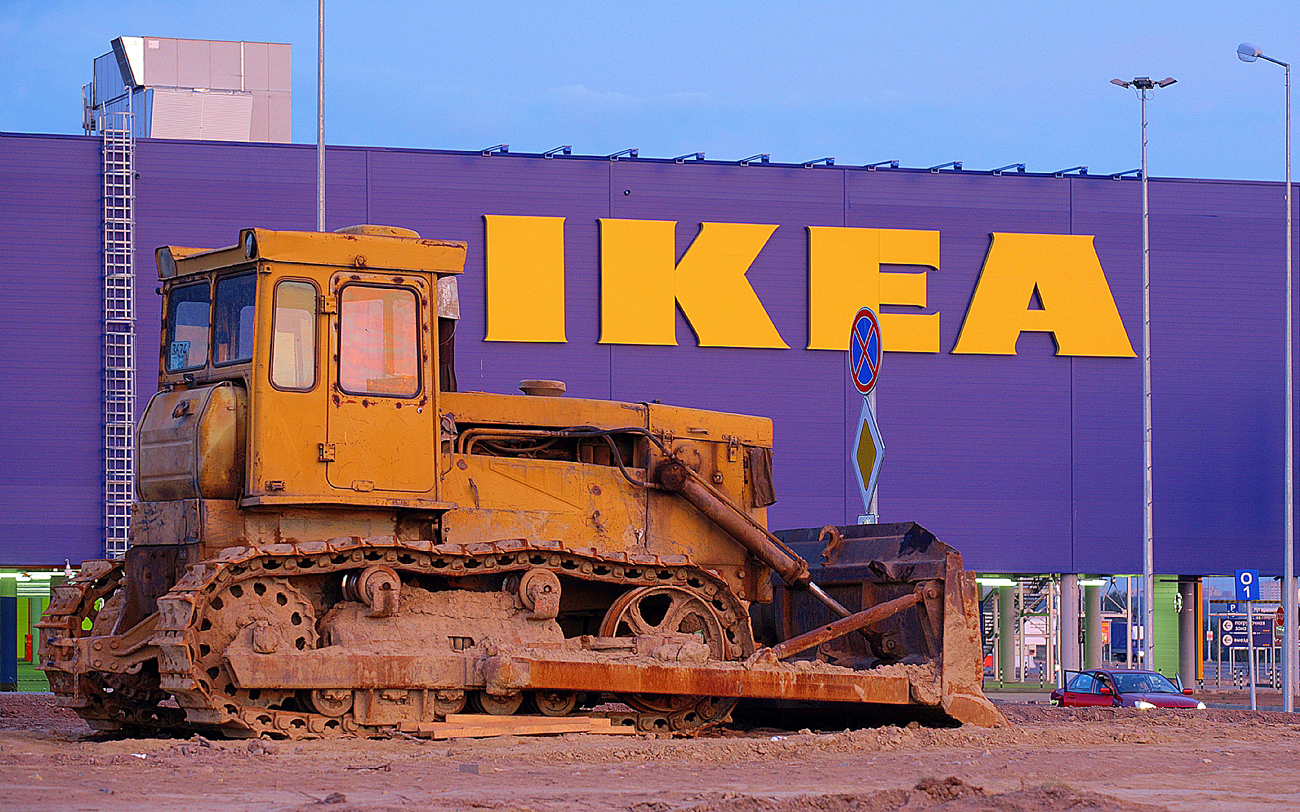
It turned out that a bribe had been offered by a Russian contractor and the top managers were guilty of knowing it but not preventing the crime. In exchange for the bribe, officials agreed to sign a fake acceptance certificate for electricity equipment in an IKEA shopping mall. Furthermore, the project had not even been approved.
One way or another, all these stories prompt lawyers to suspect that the company may be being targeted by some influential corporate raiders. “One gets the impression that the company is simply being strongly encouraged to ‘be like everybody else’,” says Gladkikh-Rodionov.
Given that the Russian market is of great significance for IKEA (the 11-percent rise in the company’s sales in 2015 was largely due to Russia and China ), it would be justified to predict that the company will continue to have to resort widely to legal assistance.
First published in Russian in Kommersant
Read more: Russia as seen through the eyes of a Finnish investor>>>
Subscribe to get the hand picked best stories every week.
All rights reserved by Rossiyskaya Gazeta.
to our newsletter!
Get the week's best stories straight to your inbox
This website uses cookies. Click here to find out more.
- Work & Careers
- Life & Arts
‘The end of an era’: Ikea, Russia’s middle class and the new cold war
To read this article for free, register now.
Once registered, you can: • Read free articles • Get our Editor's Digest and other newsletters • Follow topics and set up personalised events • Access Alphaville: our popular markets and finance blog
Explore more offers.
Then $75 per month. Complete digital access to quality FT journalism. Cancel anytime during your trial.
FT Digital Edition
Today's FT newspaper for easy reading on any device. This does not include ft.com or FT App access.
- Global news & analysis
- Expert opinion
Standard Digital
Essential digital access to quality FT journalism on any device. Pay a year upfront and save 20%.
- FT App on Android & iOS
- FT Edit app
- FirstFT: the day's biggest stories
- 20+ curated newsletters
- Follow topics & set alerts with myFT
- FT Videos & Podcasts
Terms & Conditions apply
Explore our full range of subscriptions.
Why the ft.
See why over a million readers pay to read the Financial Times.
To read this content please select one of the options below:
Please note you do not have access to teaching notes, corruption in russia: ikea’s expansion to the east (a-d).
Publication date: 18 June 2016
Teaching notes
Subject area.
Business ethics corruption governance and compliance integrity management international management intercultural and cross-cultural management internationalization corporate social responsibility (CSR).
Study level/applicability
The case has successfully been used with a wide range of audiences from masters/MBAs to Executives. It will also work with undergraduates.
Case overview
This four-part case series can be used to discuss business ethics, compliance/governance, integrity management, reacting to and preparing against corruption in the context of internationalization and allows to also briefly touching upon the issue of CSR. Case (A) describes a challenge IKEA was facing, while trying to enter Russia in 2000. The company was preparing to open its first flagship store on the outskirts of Moscow, only the first of several planned projects. After substantial investments in infrastructure and logistics, IKEA focused on marketing, but quickly faced a sudden complication. Its major ad campaign in the Moscow Metro with the slogan “[e]very 10th European was made in one of our beds” was labeled “tasteless”. IKEA had to stop the campaign because it “couldn’t prove” the claim. Soon Lennart Dahlgren, the first general manager of IKEA in Russia must have realized that the unsuccessful ad campaign was going to be the least of his problems: A few weeks before the planned opening, the local utility company decided not to provide their services for the store if IKEA did not pay a bribe. What should IKEA and Lennart Dahlgren do? Was there any alternative to playing the game the Russian way, and paying? The subsequent cases (B), (C) and (D) describe IKEA’s creative response to the challenges described in case (A), and then report about new challenges with alleged corruption within IKEA and in the legal environment, and finally raise the question whether IKEA can be considered to have a (corporate social) responsibility to fight corruption on a societal level to build the platform for its own operation in Russia.
Expected learning outcomes
Responding to a threatening corruption demand (here: responding to an outside demand for a bribe), avoiding corruption from the outside, cross-cultural differences in drawing the line for corruption, preventing corruption within the organization, (corporate social) responsibility of firms to improve the political/legal/social/moral environment in which they operate are the expected learning outcomes.
Supplementary materials
Teaching Notes are available for educators only. Please contact your library to gain login details or email [email protected] to request teaching notes.
Subject code
CSS 5: International Business
- Business ethics
- Corporate social responsibility
- International business
- Corporate values/philosophy
- Governance guidelines
Acknowledgements
The author wishes to thank: Derek Abell for his support in the design of the case series and his attempt to collect additional information. Amanpret Singh, Daniel Rettich, Martha Ihlbrock and Tonisha Robinson for their support of researching, editing, translating and formatting of the case study, teaching note and supplementary material. A sanitized version of this case study series has previously been published in the Emerald Emerging Case Study Collection under the title “Corruption by design? L’Antimarché’s struggles in Russia (A-D)”.
Müller, U. (2016), "Corruption in Russia: IKEA’s expansion to the East (A-D)", , Vol. 6 No. 2. https://doi.org/10.1108/EEMCS-11-2015-0199
Emerald Group Publishing Limited
Copyright © 2016, Emerald Group Publishing Limited
You do not currently have access to these teaching notes. Teaching notes are available for teaching faculty at subscribing institutions. Teaching notes accompany case studies with suggested learning objectives, classroom methods and potential assignment questions. They support dynamic classroom discussion to help develop student's analytical skills.
Related articles
All feedback is valuable.
Please share your general feedback
Report an issue or find answers to frequently asked questions
Contact Customer Support
- DOI: 10.1108/EEMCS-11-2015-0199
- Corpus ID: 156939423
Corruption in Russia: IKEA’s expansion to the East (A-D)
- Published 22 June 2016
- Business, Political Science
- Emerald Emerging Markets Case Studies
5 Citations
Framing of national image in a climate of socio-political uncertainty: a study of ikea and volvo car corporation in swedish and russian news media, russia's integration to the globalized automotive system: solutions adopted by multinationals and impact on the local industrial environment, amma unavagam: mitigating food insecurity through state sponsored food subsidisation programme, departmental stores in india: financial performance analysis, cultural sensemaking of corporate social responsibility: a dyadic view of russian–finnish business relationships, one reference, leading by design., related papers.
Showing 1 through 3 of 0 Related Papers

Product details

#1 Paper Writing Service
Attention Students & Busy Professionals! Feeling overwhelmed with academic writing? Struggling to meet deadlines or perfect your essays, term papers, or Harvard business case studies solutions? Fern Fort University can help! We offer a premier custom paper writing service designed to empower your academic success.
Hire A Pro Essay & Term Paper Writer
Fern Fort University case study solutions, term papers, and essays comprise strategic thinking, clarity, professional tone, conciseness, and in-depth research.
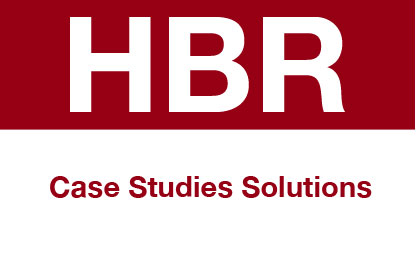
HBR Case Studies Solutions
Unique and holistic case study solutions to Harvard Business Review (HBR) case studies. All recommendations in the final analysis are based on rigorous quantitative analysis & Harvard Business Review concepts.

Custom Essay & Term Paper
100% custom written, 100% plagiarism free & 100% delivered on time..

Business Data Maps
Maps are the best way to show sales data, company growth, key customer segments etc. We plot data on maps to make awesome business data maps. Take a glimpse at what we can do with maps for you.
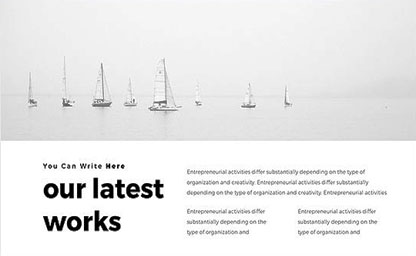
Professional PPT Presentations
Thin line between a good manager & a great leader is - Great Presentation. We make the best professional powerpoint presentations. Give wings to your career with our awesome presentations.
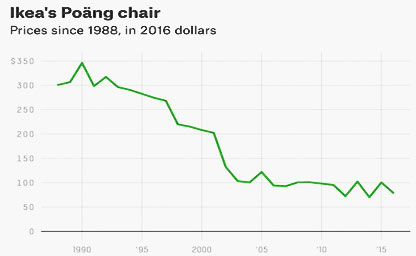
Dynamic Business Charts
No more boring & limited MS Excel charts. We make dynamic business charts such as heatmaps, financial zoom in out maps, trends analysis, & 3D data plotting.

1:1 Business Coaching
Schedule a 1 to 1 meeting with our experts for business coaching, business case study help, homework help and business analytics solutions.
Hire Writer to Write my Essay
At Fern Fort University, we recognize that our clients have different case studies, term papers, and essays requirements. So we provide prices based on the difficulty level of the task.
| 5 Days | 19.95 | 24.95 | 27.95 | 29.95 |
| 3 Days | 22.95 | 27.95 | 30.95 | 33.95 |
| 2 Days | 25.95 | 30.95 | 33.95 | 36.95 |
| 24 Hours | 29.95 | 33.95 | 36.95 | 39.95 |
| 12 Hours | 33.95 | 39.95 | 44.95 | 44.95 |
| 8 Hours | 36.95 | 44.95 | 49.95 | 49.95 |
| 6 Hours | 39.95 | 49.95 | 59.95 | 59.95 |
* Please contact us before ordering 3 hours & 6 hours paper ** 3 hours & 6 hours deadline can only take limited number of pages
What is Harvard Business School (HBS) Case Method
Harvard Business School (HBS) Case Method, a renowned approach to business education, using business case studies in the field of marketing, sales, leadership, technology, finance, enterpreneurship, human resources, and more .
Core Principles:
- Real-World Dilemmas: HBS cases delve into genuine business challenges faced by companies, exposing students to the complexities and uncertainties of real-world decision-making.
- Active Participation: Students are not passive recipients of knowledge. The case method emphasizes active participation through case discussions, fostering critical thinking and analysis.
- Developing Judgment: There are often no single “correct” answers in case studies. The focus is on developing sound judgment by weighing evidence, considering various perspectives, and making well-supported recommendations.
- Diversity and Collaboration: Diverse backgrounds and experiences enrich case discussions. Students learn from each other as they analyze the case from different viewpoints.

Structure and Implementation:
- Pre-Class Preparation: Effective case study learning hinges on thorough preparation. Students are expected to read and analyze the case beforehand, identifying key issues, conducting research, and formulating potential solutions.
- Case Discussion: The case discussion in class is the heart of the method. The instructor facilitates a dynamic discussion, encouraging active participation from all students.
- Open-Ended Questions: Instead of spoon-feeding answers, instructors pose open-ended questions that stimulate critical thinking and analysis.
- Cold Calling: The HBS method is known for its “cold calling” technique, where professors randomly call on students to respond, promoting active engagement and preparation.
- Socratic Dialogue: Instructors often employ the Socratic method, asking probing questions to challenge assumptions, encourage deeper analysis, and draw out student reasoning.
Benefits of the HBS Case Method:
- Develops Critical Thinking Skills: Grappling with complex business problems and analyzing diverse perspectives strengthens critical thinking abilities.
- Enhances Communication Skills: Active participation and clear articulation of ideas within case discussions hone communication skills.
- Sharpens Analytical Abilities: Students learn to dissect complex situations, identify key drivers, and weigh evidence effectively.
- Promotes Decision-Making Confidence: The case method fosters the ability to make well-reasoned decisions under uncertainty.
- Builds Leadership Skills: Active participation in discussions and persuasively advocating for solutions develops leadership potential.
- Prepares Students for Real-World Business: The case method equips students with the knowledge and skills to navigate the complexities of real-world business environments.
Business Case Study Assignment Help
Academic excellence.
- Tailored solutions for MBA students and business school courses.
- Specialized content for capstone projects and dissertations.
Corporate Training
- Custom case studies for executive education and corporate training programs.
- Industry-specific solutions for employee development.
- Entrepreneurship
- Case studies focused on startup challenges and innovation strategies.
- Solutions for incubators and accelerators.
Industry-Specific Case Studies
- Healthcare, technology, finance, and retail sector case studies.
- Customized solutions addressing sector-specific issues.
Consulting Firms
- Case solutions to support consulting practice and client presentations.
- Detailed analyses for strategic recommendations.
- International Business
- Case studies addressing global market entry, cross-cultural management, and international strategy.
- Solutions for multinational corporations and global business programs.
Social Impact and Sustainability
- Case studies on corporate social responsibility, sustainability, and ethical business practices.
- Solutions for NGOs and social enterprises.
How to Write a Great Case Study Solution | HBR Case Study Assignment Help
A top-tier Harvard Business School (HBS) case study solution comprises a thorough analysis, strategic insights, and actionable recommendations. The solution is not just an academic exercise but a practical approach to solving real-world business problems. Here’s an illustration of what the best Harvard case study solutions comprise, along with a detailed checklist to ensure excellence.
Key Components of a Harvard Case Study Solution
Comprehensive Understanding of the Case
- Summary of the Case : Provide a concise summary that outlines the key issues, stakeholders, and objectives. This sets the stage for deeper analysis.
- Problem Identification : Clearly define the main problem or decision point that the case presents. This includes understanding the underlying causes and the broader business context.
Detailed Analysis
- Qualitative Analysis : Evaluate qualitative factors such as organizational culture, leadership styles, and market conditions. This helps in understanding the non-quantifiable aspects that impact the business scenario.
- Quantitative Analysis : Use data and financial metrics to analyze the business performance. This includes profit margins, cost structures, revenue streams, and other relevant financial indicators.
- SWOT Analysis : Conduct a SWOT (Strengths, Weaknesses, Opportunities, Threats) analysis to provide a structured view of the internal and external factors affecting the business.
Strategic Alternatives
- Generation of Alternatives : Develop multiple strategic alternatives to address the identified problem. Each alternative should be feasible and align with the company’s goals and resources.
- Evaluation of Alternatives : Assess each alternative based on criteria such as cost, feasibility, impact, and alignment with the company’s strategic objectives. Use quantitative data where possible to support the evaluation.
Recommended Solution
- Selection of the Best Alternative : Choose the most viable solution from the generated alternatives. Justify the choice with clear, logical reasoning and supporting evidence.
- Implementation Plan : Develop a detailed implementation plan that includes steps, timelines, resources required, and potential risks. This ensures the recommended solution is actionable and practical.
- Contingency Plan : Outline a contingency plan to address potential challenges or risks that may arise during the implementation phase.
Reflection and Learning
- Lessons Learned : Reflect on the case study process and the key lessons learned. This includes insights into decision-making, strategic thinking, and the application of business concepts.
- Future Implications : Discuss the broader implications of the case study for the industry and future business scenarios.
Checklist for a Great Harvard Case Study Solution
Comprehensive Understanding
- Clearly summarized the case
- Identified the main problem and stakeholders
- Understood the broader business context
- Conducted qualitative analysis (organizational culture, market conditions, etc.)
- Performed quantitative analysis (financial metrics, data analysis)
- Completed a SWOT analysis
- Generated multiple feasible alternatives
- Evaluated alternatives based on relevant criteria
- Supported evaluations with data and logical reasoning
- Selected the most viable alternative with a strong justification
- Developed a detailed and practical implementation plan
- Created a contingency plan to manage potential risks
- Reflected on the case study process
- Identified key lessons learned
- Discussed future implications for the industry and business practices
At Fern Fort University creating a top-tier Harvard case study solution involves a methodical approach to understanding the case, performing detailed analysis, generating and evaluating strategic alternatives, and providing actionable recommendations. By following this structured process, our case solution writing experts deliver solutions that are best in class.
Hire Someone To Do My Case Study | Pay Someone To Solve My Case Study
Hiring an expert to handle your case studies solutions can significantly elevate the quality and impact of your business analyses. Fern Fort University specializes in crafting comprehensive, insightful case study solutions that deliver tangible benefits for businesses and academic success.
Expertise and Precision
Fern Fort University’s team comprises seasoned professionals with extensive experience in analyzing complex business scenarios. They bring a wealth of industry knowledge and academic rigor to every case study, ensuring that the solutions are not only theoretically sound but also practically relevant. This expertise guarantees that your case studies solutions will be insightful, well-structured, and reflective of the latest industry trends.
Time and Resource Efficiency | Express Delivery
Creating high-quality case studies solutions is a time-consuming process that requires meticulous research and analysis. By outsourcing this task to Fern Fort University, you can save valuable time and resources. This allows you to focus on your core business activities while ensuring that your case studies are handled by experts who can deliver superior results efficiently.
Comprehensive Analysis
Fern Fort University provides a thorough analysis of each case, considering all relevant factors such as market conditions, financial data, competitive landscape, and organizational dynamics. This comprehensive approach ensures that the solutions are robust and well-rounded, providing a deep understanding of the business challenges and opportunities.
Tailored Solutions
Every business is unique, and Fern Fort University recognizes this by offering customized case study solutions tailored to your specific needs. Our team works closely with clients to understand their objectives and constraints, ensuring that the final product aligns perfectly with your strategic goals and academic requirements.
Enhanced Learning and Application
For academic clients, Fern Fort University’s case study solutions are designed to enhance learning and application. Our detailed, step-by-step analyses provide students with clear insights into complex business problems, helping them develop critical thinking and decision-making skills. For businesses, these solutions offer actionable recommendations that can be directly applied to improve performance and drive growth.
High Standards of Quality
Fern Fort University is committed to delivering top-quality work that meets the highest academic and professional standards. Our case studies solutions are thoroughly researched, well-written, and meticulously reviewed to ensure accuracy and coherence. This commitment to quality guarantees that you receive a product that can withstand rigorous scrutiny and provide valuable insights.
Competitive Advantage
By leveraging Fern Fort University’s expertise, you gain a competitive advantage. Our insightful analyses and strategic recommendations can help you identify new opportunities, mitigate risks, and make informed decisions that drive success. This can be particularly beneficial in a competitive business environment where having a well-crafted case study can set you apart from your peers.
Hiring Fern Fort University to write your case studies solutions is a strategic investment that delivers exceptional results. Our combination of expertise, efficiency, comprehensive analysis, and tailored solutions ensures that your case studies solutions will be of the highest quality, providing valuable insights and a competitive edge. Focus on your core activities and leave the complex task of case study analysis to the experts at Fern Fort University, ensuring academic excellence and business success.
Custom Case Study Writing Service Process | Affordable
The case study writing process at Fern Fort University is meticulously designed to ensure clients receive comprehensive, high-quality solutions tailored to their specific needs. Below is a detailed breakdown of the process:
Step 1: Fill the Form and Upload Guidelines
The first step involves clients filling out a detailed form to provide necessary information about their case study solution needs. This form includes fields for essential details such as the topic, objectives, scope, and any specific guidelines or instructions that need to be followed. Uploading comprehensive guidelines is crucial as it sets the foundation for a well-aligned and accurate case study solution. This ensures that the case study writer fully understands the client’s requirements and expectations from the outset.
Step 2: Upload the Case Study PDF
Once the guidelines are uploaded, clients are required to upload the case study PDF. This document contains the case study that needs to be analyzed and solved. Providing the case study in its PDF format allows the writer to thoroughly review and understand the context, background, and specifics of the problem at hand. This step ensures that the writer has all the necessary materials to begin the in-depth analysis.
Step 3: Converse with the Case Study Solution Writer
After the initial submission of guidelines and the case study, the next step involves direct communication between the client and the case study solution writer. This conversation is pivotal as it allows for clarification of any ambiguities and discussion of project deliverables. The writer can ask questions to gain a deeper understanding of the client’s needs, while the client can provide additional insights or preferences. This step ensures that both parties are on the same page and that the writer can tailor the analysis and solution to meet the client’s exact expectations.
Step 4: Delivery of the Case Study Solution
Upon completion of the analysis and drafting of the case study solution, the writer delivers the final product to the client. The delivery includes a comprehensive report that outlines the problem, detailed analysis, proposed solutions, and actionable recommendations. The case study solution is presented in a clear, structured format that is easy to understand and implement. This step marks the culmination of the writer’s efforts and provides the client with a well-crafted solution that addresses all the guidelines and expectations .
Step 5: Improvements (If Required)
After the delivery of the case study solution, clients have the opportunity to review the document and request any necessary improvements. This step ensures that the final product meets the client’s satisfaction and adheres to all specified requirements. The writer makes the required adjustments based on the client’s feedback, fine-tuning the analysis and recommendations as needed. This iterative process guarantees that the case study solution is of the highest quality and fully aligned with the client’s expectations.
Importance of Each Step in the Process
Filling the form and uploading guidelines.
This initial step is critical as it sets the direction for the entire project. Clear and detailed guidelines ensure that the writer understands the scope, objectives, and specific requirements, reducing the risk of misalignment and ensuring a focused approach.
Uploading the Case Study PDF
Providing the case study in its original format ensures that the writer has all the necessary context and background information. This step is crucial for a thorough understanding of the problem and accurate analysis.
Communication with the Writer
Direct communication allows for clarification of any doubts and ensures that both the client and the writer have a mutual understanding of the project deliverables. This interaction is essential for tailoring the solution to meet the client’s specific needs.
Delivery of the Solution
Delivering a comprehensive and well-structured case study solution provides the client with actionable insights and recommendations. This step showcases the writer’s expertise and ensures that the client receives a valuable product that addresses the case study’s challenges effectively.
Requesting Improvements
The opportunity for revisions ensures that the final product meets the client’s expectations and adheres to all requirements. This step adds a layer of quality assurance, ensuring client satisfaction.
The case study writing service process at Fern Fort University is designed to deliver high-quality, tailored solutions through a structured and client-focused approach. Each step in the process is carefully crafted to ensure clarity, thorough analysis, and client satisfaction. By following this comprehensive process, Fern Fort University guarantees that clients receive insightful and actionable case study solutions that meet their specific needs and contribute to their academic or business success.
Professional Case Study Writers | Business Case Study Writing Service
Fern Fort University’s professional case study solution writers have the following attributes that can help you to boost your academic and professional growth --
1. Analytical Skills : Professional case study solution writers at Fern Fort University possess exceptional analytical skills. They can break down complex problems into manageable parts, identify key issues, and understand the underlying factors influencing the situation. This enables them to provide a deep and insightful analysis that addresses the core of the problem.
2. Research Proficiency : Our writers excel in conducting thorough and rigorous research. They are adept at gathering relevant data from credible sources, including academic journals, industry reports, and case-specific documents. Their research proficiency ensures that the case study solutions are well-informed and supported by solid evidence.
3. Critical Thinking : Critical thinking is a hallmark of Fern Fort University’s writers. They evaluate information from multiple perspectives, assess the validity of sources, and develop logical, well-reasoned conclusions. This skill allows them to craft nuanced solutions that consider various possible outcomes and implications.
4. Writing Clarity : Our writers are known for their clear and concise writing style. They present complex ideas in an understandable manner, ensuring that the case study solutions are accessible to a broad audience. This clarity helps communicate the findings and recommendations effectively.
5. Industry Knowledge : Writers at Fern Fort University have a deep understanding of the industries they write about. Whether it’s finance, healthcare, technology, or any other sector, they bring industry-specific insights that enrich the case study analysis and make the solutions relevant and practical.
6. Attention to Detail : Attention to detail is critical in case study writing, and our writers excel in this area. They meticulously ensure the accuracy of data, adherence to guidelines, and completeness of the analysis. This thoroughness prevents errors and enhances the credibility of the solutions.
7. Problem-Solving : Our writers are skilled problem-solvers. They go beyond identifying issues by proposing actionable and realistic solutions. Their recommendations are practical and tailored to the specific context of the case study, providing clients with clear steps to address the challenges.
8. Communication Skills : Effective communication is vital for conveying complex ideas and solutions. Writers at Fern Fort University are adept at communicating their findings and recommendations clearly and persuasively. They can articulate their points in a way that resonates with stakeholders.
9. Time Management : Delivering high-quality case study solutions within tight deadlines is a standard practice at Fern Fort University. Our writers are efficient and organized, managing their time effectively to meet deadlines without compromising on the quality of their work.
10. Adaptability : Our writers are highly adaptable, capable of tailoring their approach to meet the unique needs of different cases and clients. Whether it’s a change in scope, new information, or specific client preferences, they adjust their strategies to deliver customized and relevant solutions.
Fern Fort University’s professional case study solution writers deliver comprehensive, insightful, and actionable case study solutions that meet the highest academic and professional standards.
Where Can I Find a Case Solution for Harvard Business Cases or HBR Cases? | Pre-written Solutions
At Fern Fort University, you can find comprehensive case analysis solutions for Harvard Business School (HBS) or Harvard Business Review (HBR) cases. These solutions are different from custom case study solutions. They are provided to help clients to prime their research and analysis. These pre-written HBR case study solutions are designed to help you in several ways:
- Thorough Analysis : Each solution includes a detailed examination of the case, identifying key issues, challenges, and opportunities.
- Structured Approach : The solutions are organized in a clear, logical manner, making it easier for you to follow and understand the analysis process.
- Actionable Recommendations : Practical and realistic recommendations are provided, offering clear steps to address the case’s problems.
- Insightful Learning : By studying these solutions, you gain insights into effective problem-solving techniques and strategic thinking.
How Pre-Written Solutions Can Help You:
- Time-Saving : Access to pre-written solutions saves significant time that you would otherwise spend on researching and writing.
- Learning Tool : These solutions serve as excellent learning tools, helping you understand how to approach case analysis methodically.
- Enhanced Understanding : You gain a deeper understanding of various business scenarios and how to address them.
- Quality Reference : High-quality solutions can act as a benchmark for your own case study analyses, ensuring you maintain a high standard.
- Academic Success : Using these comprehensive and well-researched solutions can improve your academic performance by providing clear examples of successful case analyses.
- Professional Development : These solutions also help in professional settings by demonstrating how to tackle real-world business challenges effectively.
By leveraging the pre-written case study solutions from Fern Fort University, you can enhance your academic and professional capabilities, ensuring that you are well-prepared to address complex business problems.
Getting Started
- Template setup
- Basic theme setup
- Navigation bar
- Footer options
- Creating your first post
- Creating docs posts
- Enabling comments
- Google Analytics
Product Features
- Hero page header
- Category boxes section
- Fearured docs section
- Video lightbox boxes section
- Frequently asked questions section
- Team members section
- Call to action section
- Creating a changelog
- Contact form
- Adding media to post and doc content
- Adding table of contents to docs
- Adding alerts to content
- Customization
- Translation
- Development
- Sources and credits
- Contacting support
- Case Studies
- Essays & Term Papers
- Strategy Case Studies
- Marketing Case Studies
- Organization Behavior
- Business Government
- Business Ethics
- General Management
- Human Resource Management
- Social Enterprises
- Negotiations
- Operations Management
- Information Technology
- Service Management
- IKEA Global
- Corporate news
- IKEA scaling down in Russia and Belarus

Published 15 June 2022 • Inter IKEA newsroom
IKEA takes the next step to scale down in Russia and Belarus
The war in Ukraine has already had a terrible impact on so many people’s lives. It is a human tragedy that is continuing to affect people and communities.
On 3 March, Inter IKEA Group and Ingka Group announced the pausing of IKEA operations in Russia and Belarus as a consequence of the war in Ukraine. Since then it has been a priority to provide support and security to co-workers, and the groups of companies have been able to guarantee 6 months’ salary for all co-workers, as well as core benefits.
Unfortunately the circumstances have not improved and the devastating war continues. Businesses and supply chains across the world have been heavily impacted and we do not see that it is possible to resume operations any time soon.
As a consequence, Inter IKEA Group and Ingka Group have now each decided to enter a new phase to further scale down the IKEA business in Russia and Belarus.
- The IKEA Retail business will remain stopped, and the workforce will be reduced, meaning that many co-workers will be affected. In order to support the scaling down process, Ingka Group plans to sell out its home furnishing inventory in Russia.
- The Inter IKEA owned Industry business in Russia will reduce the workforce and start the process of finding new ownership for all four factories.
- Import and export of IKEA products to and from Russia and Belarus will remain stopped. The two Inter IKEA owned purchase and logistics offices in Moscow and Minsk will close permanently.
This process is currently underway and all actions and decisions taken will be guided by the IKEA values and to support our people to the best of our ability.
IKEA offers well-designed, functional and affordable, high-quality home furnishing, produced with care for people and the environment. There are several companies with different owners, working under the IKEA Brand, all sharing the same vision: to create a better everyday life for the many people. IKEA was founded in Sweden in 1943.
About the IKEA franchise system
The IKEA retail business is operated through a franchise system with franchisees that are authorised to market and sell the IKEA product range within specified geographical territories. Inter IKEA Systems B.V. is the owner of the IKEA Concept and worldwide IKEA franchisor, who also assigns different IKEA companies to develop the product range, supply products and deliver communication solutions. Today, 12 different groups of companies have the right to own and operate IKEA sales channels under franchise agreements with Inter IKEA Systems B.V.
About Inter IKEA Group
Inter IKEA Group includes Inter IKEA Systems B.V., IKEA of Sweden AB, IKEA Supply AG and IKEA Industry AB related businesses. Inter IKEA Holding B.V. is the holding company for the Inter IKEA Group.
Range and Supply
For questions regarding the IKEA range: how we design and develop our products, including the IKEA food offer, and questions regarding how we source and distribute them, please contact us here:
+46732321300
11.05.2016 | IKEA’s troubled history in Russia
The expansion problems faced by the retailer in Russia highlight the extent of petty and systematic corruption among local officials.
Ever since April 2000, when the Swedish furniture retailer IKEA opened its doors to its first Russian customers in the Moscow Region town of Khimki, the company has been a popular destination for Muscovites wishing to give their old Soviet-era flats a makeover in true European, or ‘EuroRemont’, fashion. Now Russia, the retailer’s fastest growing market after China, is the home of fourteen IKEA ‘Mega’ shopping centres, spreading from St. Petersburg on the Baltic to Novosibirsk in south-western Siberia. But while the company has successfully penetrated the Russian market, its expansion has not been smooth.
Last month, officers from the Moscow Region's Economic Crimes unit searched IKEA’s Russian headquarters in the Khimki business park. IKEA’s lawyer, Semyon Shevchenko, said the raid was in connection with a recently opened criminal investigation into a long-running dispute over a plot of land. The raid, reminiscent of the tactics employed in corporate battles over lucrative assets in the turbulent 1990s, is the latest in a series of obstacles the company has faced in its drive to increase its presence in the Russian regions.
In 2004 the opening of the company’s second Mega shopping centre, also in Khimki, was delayed for two weeks, ostensibly due to a disagreement with local authorities about the location of gas pipes running through the centre’s car park. In 2006 IKEA was forced to halt the construction of a new Mega store in Rostov-on-Don due to problems obtaining the correct permit. The same year saw the temporary closure of the Mega store in Nizhny Novgorod, after inspectors identified almost one thousand fire safety violations. Shortly after, the prosecutor in Sverdlovsk Oblast launched a probe into the Mega store in Yekaterinburg over compliance with sanitary and fire safety standards. The company has additionally experienced complications in opening Mega stores in Ufa, Samara, Novosibirsk and St. Petersburg, and in the construction of a distribution warehouse in the Moscow region town of Solnechnogorsk.
Many of IKEA’s problems appear to stem from its unyielding anti-corruption policy. Back in 2004 Hans-Göran Stennert, then-Chairman of IKEA’s parent company Ingka Holding BV, said that maintaining ethical standards in dealings with Russian authorities had disadvantaged the firm. Demands by local officials for backhanders prompted IKEA to announce in 2009 a halt to further expansion in Russia, notably putting on hold plans to invest $1 billion in Mega 4, the largest shopping centre in Europe, which was to be built in the Moscow Region town of Mytishchi.
The difficulties IKEA and many other Western companies have encountered underline the petty and systemic corruption prevalent at the local level, something Russian businesses have long resigned themselves to. The rule of law in Russia is sometimes inconsistent and arbitrarily applied. Weak governance and limited accountability mean the problem is particularly acute in metropolitan and provincial municipalities, where authorities frequently turn a blind eye to graft; some even regard it as a legitimate way for lower-level officials to supplement their meagre incomes. Last year the Russian daily Izvestia reported that the average bribe paid to officials had more than doubled year-on-year.
Last month’s Khimki raid does not appear to be the work of avaricious officials, but bribery remains a significant hurdle for the company and other Western firms looking to expand their operations in Russia. President Vladimir Putin talks a great deal about the need to clamp down on corruption and has launched numerous anti-graft campaigns and investigations targeting state-owned companies. However, most observers have dismissed them as little more than political gestures. If Russia wants to attract foreign investment, the government will have to do much more to tackle the widespread cultural acceptance of bribe-taking. IKEA has been patient so far, but other foreign businesses may prefer to look elsewhere.

COMMENTS
The comprehensive case study on IKEA's journey in the Russian market adeptly sheds light on IKEA's triumphs and challenges, emphasizing the need for corporations to adapt and innovate in ...
As a powerful multinational company, IKEA also stands for a business ideology and case study of entering and navigating the Russian market. As such, the company, its brand, stores, and megamalls all sit at the intersection of social and political themes in contemporary Russia. ... "Ikea Fires 2 Officials in Russia Bribe Case," The New York ...
The case analysis under discussion focuses on the opening of the first IKEA store in Russia. After the fall of the Iron Curtain, IKEA decided to enter Russian market and grab the attention of its newly emerged middle class. This decision was caused by the need of Russian people to have new, properly designed, and affordable furniture instead of ...
IKEA has been in litigation regarding these two disputes for over 10 years. IKEA is an absolute champion in terms of the number of court cases it has had in Russia. The register of arbitration ...
Svetlana Shapovaliants vividly remembers visiting the first Ikea store in Russia, shortly after it opened in 2000. At the time, she and her husband were in their twenties and living in a ...
This four-part case series can be used to discuss business ethics, compliance/governance, integrity management, reacting to and preparing against corruption in the context of internationalization and allows to also briefly touching upon the issue of CSR. Case (A) describes a challenge IKEA was facing, while trying to enter Russia in 2000.
This four-part case series can be used to discuss business ethics, compliance/governance, integrity management, reacting to and preparing against corruption in the context of internationalization and allows to also briefly touch upon the issue of Corporate Social Responsibility (CSR). Case (A) describes a challenge IKEA was facing, while trying to enter Russia in 2000. The company was ...
The case starts out with the efforts made by Lennart Dahlgren to set up IKEA's first store in Russia. It details the challenges faced by him in this process. Later, the case talks about the way IKEA went about positioning its stores, in addition to the new business model it came up with considering the unique circumstances of Russia.
Case (A) describes a challenge IKEA was facing, while trying to enter Russia in 2000. The company was preparing to open its first flagship store on the outskirts of Moscow, only the first of ...
Case (A) describes a challenge IKEA was facing, while trying to enter Russia in 2000. The company was preparing to open its first flagship store on the outskirts of Moscow, only the first of several planned projects. After substantial investments in infrastructure and logistics, IKEA focused on marketing, but quickly faced a sudden complication.
This case is about Sweden-based furniture retail giant IKEA Group's (IKEA) entry into and expansion in Russia. When IKEA entered this key emerging market as part of its international expansion strategy, it had to face several roadblocks when setting up stores, inaugurating them, and even while advertising them.
Opening of the Stores. In March 2000, IKEA's first store in Russia was opened at Khimki. The inaugural day drew a large crowd of 40,000 shoppers. People waited for an hour to get into the store and all the roads leading to it were backed up with traffic for miles around. Analysts believed that by the time IKEA opened its first store there was a ...
Ingka Group has taken the decision to pause all IKEA Retail operations in Russia, while the shopping centre Mega, will continue to be open to ensure that the many people in Russia have access to their daily needs and essentials such as food, groceries and pharmacies. These decisions have a direct impact on 15,000 IKEA co-workers.
This four-part case series can be used to discuss business ethics, compliance/governance, integrity management, reacting to and preparing against corruption in the context of internationalization and allows to also briefly touching upon the issue of Corporate Social Responsibility (CSR). Case (A) describes a challenge IKEA was facing, while trying to enter Russia in 2000.
Step 1 - Establish a sense of urgency. What are areas that require urgent change management efforts in the " Corruption in Russia: IKEA's Expansion to the East (A) " case study. Some of the areas that require urgent changes are - organizing sales force to meet competitive realities, building new organizational structure to enter new ...
The Inter IKEA owned Industry business in Russia will reduce the workforce and start the process of finding new ownership for all four factories. Import and export of IKEA products to and from Russia and Belarus will remain stopped. The two Inter IKEA owned purchase and logistics offices in Moscow and Minsk will close permanently.
Abstract. The case "IKEA in Russia - Ethical Dilemmas" describes the efforts and tribulations of international furniture retail giant, IKEA while setting up and doing business in the emerging market of Russia. The case starts out with the efforts made by Lennart Dahlgren to set up IKEA's first store in Russia. It details the challenges faced by ...
IKEA`s Challenges in Russia. This case is about Sweden-based furniture retail giant IKEA Group's (IKEA) entry into and expansion in Russia. When IKEA entered this key emerging market as part of its international expansion strategy, it had to face several roadblocks when setting up stores, inaugurating them, and even while advertising them.
Supplement to case ES1691. This four-part case series can be used to discuss business ethics, compliance/governance, integrity management, reacting to and preparing against corruption in the context of internationalization and allows to also briefly touching upon the issue of Corporate Social Responsibility (CSR). Case (A) describes a challenge IKEA was facing, while trying to enter Russia in ...
The expansion problems faced by the retailer in Russia highlight the extent of petty and systematic corruption among local officials. Ever since April 2000, when the Swedish furniture retailer IKEA opened its doors to its first Russian customers in the Moscow Region town of Khimki, the company has been a popular destination for Muscovites ...
By 2020, IKEA aimed to achieve a revenue growth of 1.5 times to €50 billion from €34.2 billion in the fiscal year ended 2015-2016. Commenting on its future goals, Walter Kadnar (Kadnar), the general director of the network in Russia, said, "Our goal is long-term investment.